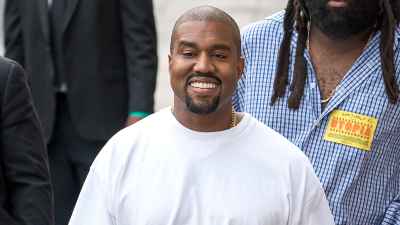When you imagine a great leader, you probably picture a Fortune 500 CEO with a booming voice and a corner office. But leadership is not about dominance; it’s about unlocking the collective genius of a group. And Hollywood may have more to teach us about that than the boardroom does.
Let’s start with Pharrell Williams: the multihyphenate is (among other things) a composer, a producer and the men’s creative director for Louis Vuitton. He’s also one of the most sought-after collaborators around, because he makes it about the project, not himself.
He spots hidden potential and brings people together across industries. (Look no further than the viral 2016 video of Williams hearing — and being gobsmacked by — then-NYU-grad-student Maggie Rogers’ music for the first time.) He defies the myth that leaders must be larger-than-life personalities, showing that the best ones reveal the strengths of others and create conditions where collaboration thrives.
Lady Gaga similarly curates diverse voices in her music, fashion, activism, film and business ventures, which include cosmetics brand Haus Labs by Lady Gaga and the Born This Way Foundation. She surrounds herself with people who bring different perspectives, multiplying creativity in the process. (There are few who can say they’ve collabed with Beyoncé, Jeff Koons and Joaquin Phoenix.)
Studies confirm that groups that have diverse resources consistently solve complex problems better than homogeneous ones, and Gaga proves that inclusivity isn’t just a value — it’s a competitive advantage.
Or Ryan Reynolds. From Aviation Gin to his Welsh soccer team, Wrexham AFC, the Deadpool star doesn’t play the domineering alpha. He builds partnerships, shares credit and uses humor to create trust. People want to join his projects because they feel seen and valued. Trust is the foundation of team performance, and Reynolds proves that the myth of the all-powerful alpha belongs on the cutting room floor.
Speaking of men who’ve joyfully rejected the alpha type, Keanu Reeves is beloved not just for The Matrix and John Wick, but for his generosity and quiet leadership. Stories of his funding crew salaries, taking pay cuts and treating everyone he meets with dignity are legendary.
Reeves does not command loyalty by being the loudest voice in the room; he earns it by providing what experts call psychological safety, which gives the people around him the security to take risks and speak up. Teams with psychological safety consistently outperform those without it. Reeves proves that kindness, not bravado, is the ultimate leadership power.
Viola Davis also brings power through vulnerability, and she has the EGOT to prove it. In her work, she commands attention with raw honesty, but her leadership lies in how that honesty elevates her costars. By creating space for vulnerability, she pushes others to rise with her. Vulnerability strengthens trust and makes teams more resilient.
And finally, Meryl Streep, often called the greatest actor of her generation, shows that true star power doesn’t overshadow; it amplifies. Costars from Anne Hathaway to Tom Hanks have said that acting alongside Streep makes them better. She shows that greatness in leadership isn’t about dominance but about elevating others.
What these stars demonstrate and the science confirms is that leadership is not about charisma or control. The best teams succeed because their leaders cultivate trust, safety and respect. Which means that some of our red carpet regulars may actually provide the blueprint for the future of leadership, or what I call team intelligence, and that is how we unlock collective genius.

